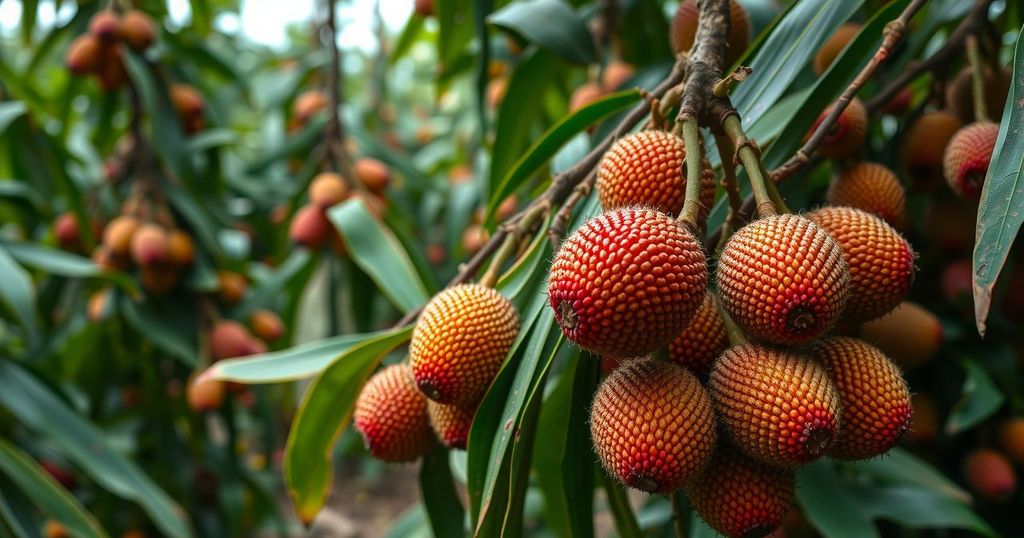Madagascar’s lychee harvest is threatened this season with significant drop forecasts due to high rainfall and climate challenges. Industry leaders, like Judith Riccati, emphasize the need for urgent adaptive strategies to mitigate the impacts on agriculture and economics in the region. Possible solutions include altering harvest logistics and sourcing from remote areas to fulfill export demands.
Madagascar’s lychee season, critical for the global market, is facing unprecedented challenges, signaling a dire situation for local growers and exporters. The harvest commenced recently, with shipments expected to cater to the European delicacy demands, yet the forecasts of a significant yield drop are casting shadows over the industry. Tensions are palpable in Tamatave, a key port city, as industry experts attribute the anticipated decline to a combination of environmental factors, including excessive rainfall and subtropical climate anomalies. Judith Riccati, deputy executive director of the Tamatave Horticultural Technical Centre, highlighted that unusually high precipitation levels earlier in the year have severely stalled plant growth, leading to premature flowering and a number of plant losses. Additionally, the lack of the necessary climate shock has hindered the trees’ ability to properly bear fruit due to their age. The situation demands urgent consideration for remedial strategies. Potential solutions are being debated within the agricultural community, such as the possible reduction of export quotas. However, Riccati indicated that this may not be feasible due to existing logistical agreements. An alternative consideration is extending the harvest by sourcing fruit from more remote areas, although this entails logistical challenges, such as extended loading times. Implementing new strategies has been an ongoing discussion for over two decades. Sustainable approaches to manage the unpredictable weather, which continues to pose a threat to agricultural productivity, are now more crucial than ever.
Madagascar stands as the world’s leading producer of lychees, especially during the end-of-year season, supplying much of its harvest to the European market. The annual harvest plays a vital role not only in the agricultural sector but also in the economy of the region. However, growers face mounting challenges due to changing weather patterns and environmental stressors that affect crop yields critically. This year’s harvest has shown alarming signs of a decline in productivity, raising concerns about the country’s agricultural sustainability and economic stability.
In summary, the crisis facing Madagascar’s lychee growers underscores the pressing need for adaptive strategies to combat environmental challenges and ensure sustainable production. With experts exploring various solutions, including revised export practices and resource management, the industry’s future remains uncertain as it grapples with the implications of climate change on agricultural productivity. The following year could set a pivotal precedent for the lychee harvest and the farmers reliant on this vital crop.
Original Source: www.rfi.fr






